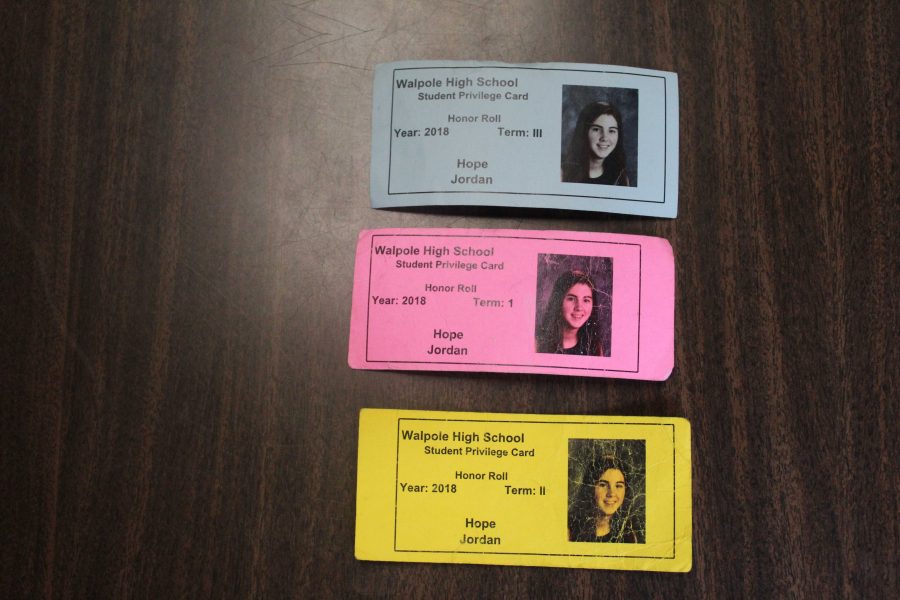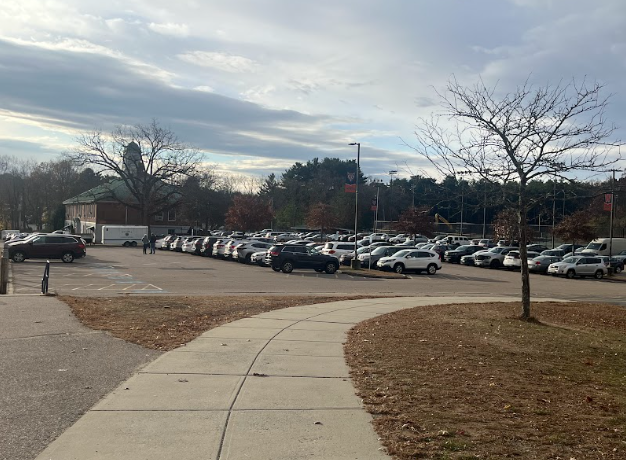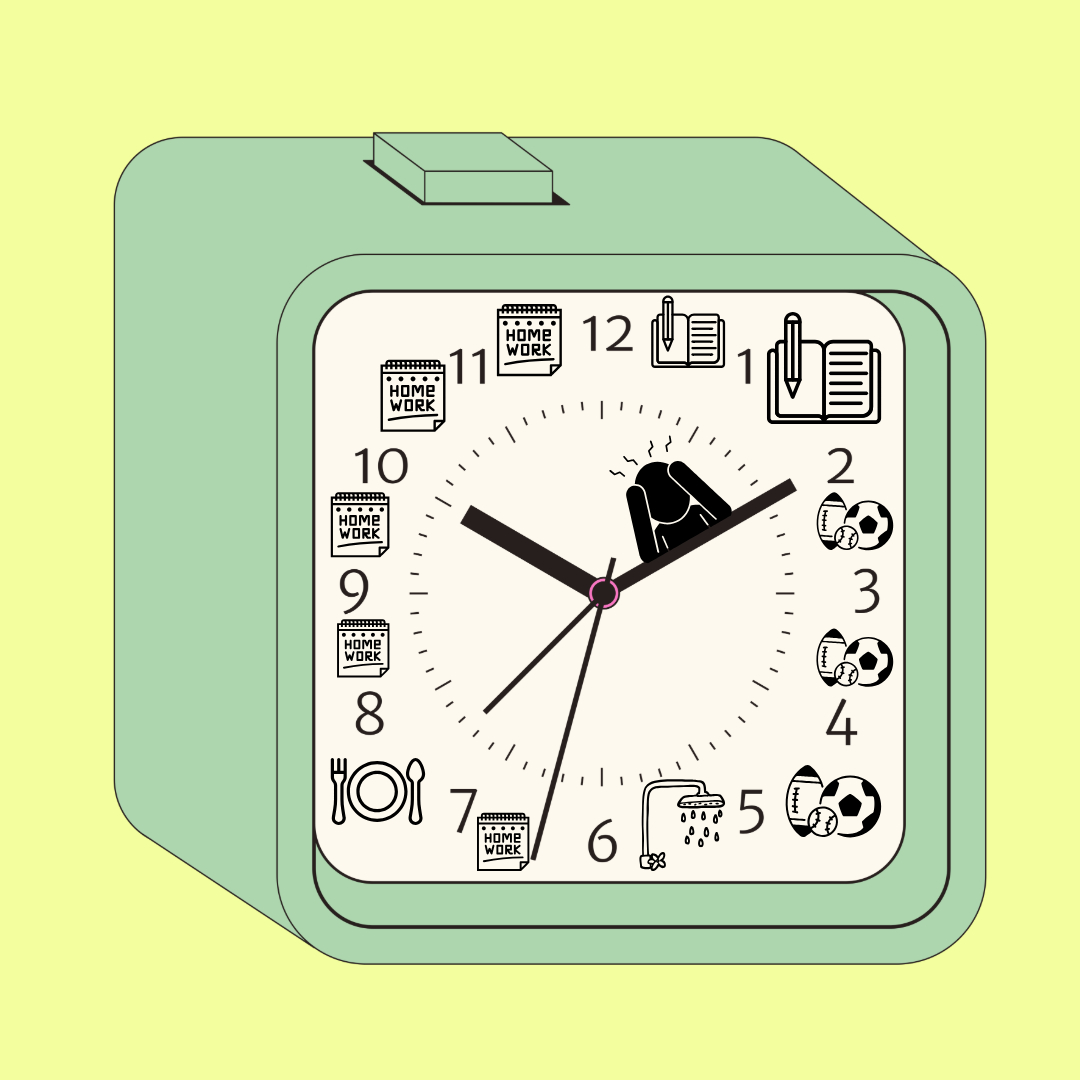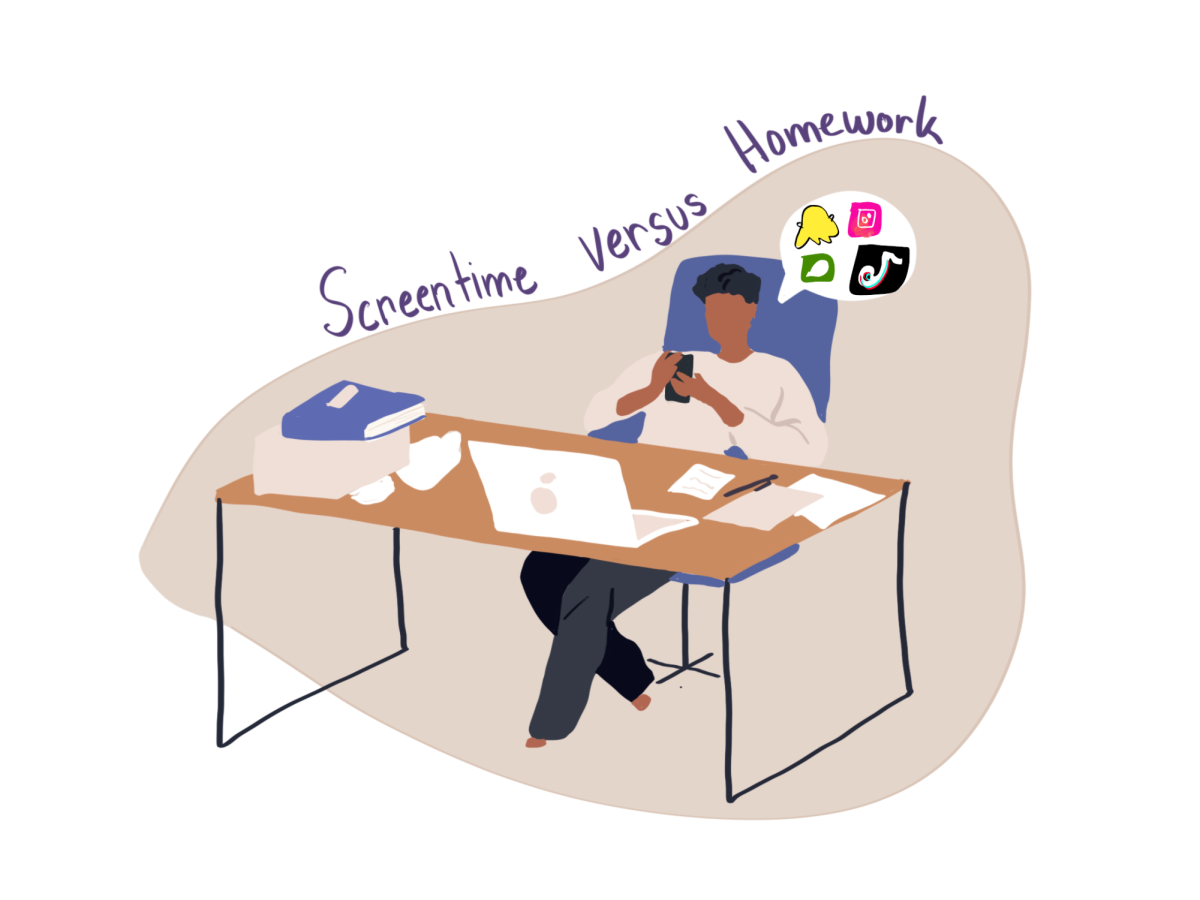Leaving school early in place of a study period as a senior, getting discounts on school events, not needing a library pass from a teacher during study—all are benefits students with privilege cards receive. Typically, students go to the library during a study period to access computers and complete online assignments. Without a privilege card, students need a pass from a teacher allowing them to go to the library during their study period. Currently, privilege cards at Walpole High School are distributed to students each term if they are on honor roll, which requires maintaining at least an 80% average in all of their classes. Being on honor roll or not is not an accurate scale for who should receive a privilege card, as there are many other ways for students to receive privilege rather than just getting an 80 or above in their classes.
In 2015, Rebellion staff writers Grace Sewell, Audrey Lynch and Caitlin Cooper wrote “Privilege Cards Blacklist Some of Walpole High’s Hardest Workers,” an article that addressed the disadvantages students in accelerated classes have. There is a 5% grade difference between each level class; therefore, a student in an honors class may have a 79% average in the class, preventing them from receiving a privilege card, though it equates to 84% in a CP1 class. While Sewell, Lynch and Cooper called attention to the difficulty of getting a privilege card in higher leveled classes, there has still been no change in the policy.
Many students put consistent effort into their classes yet do not meet the grade requirement for the honor roll standard. Subsequently, these students do not receive the same benefits as privilege card holders, although they may try as hard as—if not harder—than those on honor roll. For those who go above and beyond in their classes but do not have grades above 80%, it is unfair they do not have the opportunity to get a privilege card and its perks. School comes easier to some students, making privilege cards harder for those who struggle academically to receive. Rather than basing privilege cards solely on grades, they should be issued based on effort as well. Teachers should have the ability to give cards to students they believe try hard both in and out of class, even if they do not have high enough grades.
Basing privilege cards on effort would be an incentive for students who do not usually get honor roll to try harder in school. If they know by putting in effort they could receive the advantages that come with privilege cards, they could try harder to improve in school to earn a reward.
When basing privilege cards on effort, teachers do not want to accuse students of not trying, which is what the current system is doing. However, alternative ways for issuing privilege cards should be provided by the school. A student who receives good grades does not mean that he or she is capable of behaving well in the library, for example. Students should have the opportunity to apply for a privilege card if they do not make honor roll, and teachers can then decide if they should sign off on the application deeming they are worthy of the card. To properly gage the student’s effort, teachers can monitor both improvements they make in class and the number of times they stay after for additional help. Students who demonstrate effort by staying after with teachers to improve their work, attending homework club and working with the National Honor Society peer tutoring lab deserve recognition.
Though currently the only way to get a privilege card currently is to be on honor roll, there should be alternative ways to provide all students with a fair opportunity to receive one. Overall, students who maintain at least 80% in their classes should be rewarded for their efforts, but the school should also recognize students who put forth consistent effort by granting them the same privileges.















